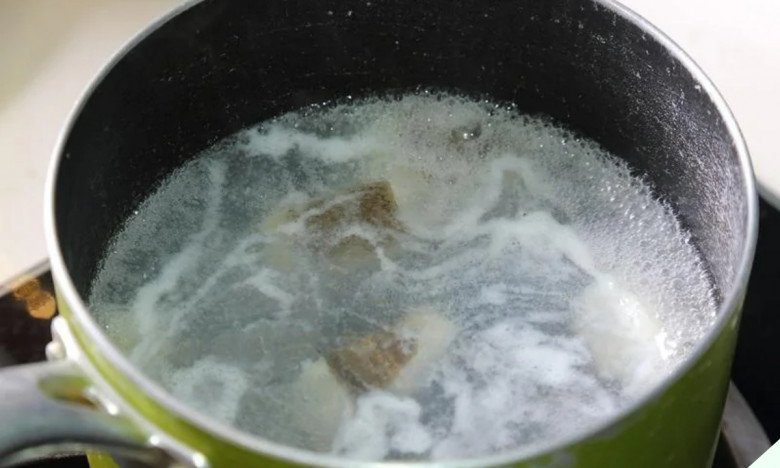I’m not the best cook, but I can manage, so I didn’t hesitate to lend a hand. Making fish soup is quite simple, so I cooked it the way I usually do.
Since fish can be quite smelly, I decided to pan-fry it lightly before adding it to the soup, and I also added a special ingredient – a spoonful of rice wine. This type of alcohol not only enhances the flavor but also helps to neutralize the fishy smell.

As I was adding the rice wine to the soup, my mother-in-law suddenly appeared out of nowhere. I always felt like she was lurking in the background, waiting to pounce on any mistakes I made in the kitchen. True to form, she singled me out in front of all the other family members and started berating me.
She said, “Only country bumpkins fry the fish before cooking it this way. And who told you to put wine in the soup? Are you trying to poison my family? The smell is overwhelming, and no one will be able to eat it. You really are useless. Pour it out immediately.”
Encouraged by my mother-in-law’s outburst, the older family members joined in, chiming in that no one puts wine in soup and that I had wasted a good grass carp.

I was so upset by my mother-in-law’s unreasonable scolding that I burst into tears, but I still tried to explain myself. To this day, I don’t understand why she felt the need to embarrass me like that, especially without even tasting the soup to judge its flavor.
Seeing me so upset, my sister-in-law came to my defense and helped me finish cooking the soup. After we were done, I excused myself from the dinner and waited in the car until my husband and children were ready to leave.
Was I wrong to cook the fish soup that way? Even if I made a mistake, shouldn’t my mother-in-law have pulled me aside and given me private guidance instead of humiliating me in front of everyone?
According to experienced chefs, using rice wine in fish soup is actually the correct thing to do. When cooking fish soup to neutralize the fishy smell, there are three essential ingredients you should never overlook: rice wine, scallions, and fresh ginger.
1. Using Ginger
Ginger adds a delightful fragrance to the soup and effectively neutralizes any fishy odors. The key is to add the ginger at the right time – just before the soup is ready. Adding it too early will reduce its effectiveness in removing the fishy smell.

2. Adding Scallions
Scallions enhance the aroma of the dish. Cut the scallions into lengths of about 1-2 finger widths. Split the white part of the scallion in half to ensure even cooking. Only add the scallions just before turning off the heat to preserve their freshness, sweetness, and fragrance.
3. Using Rice Wine
As mentioned earlier, rice wine is excellent for neutralizing fishy odors. Don’t worry about the soup absorbing an alcoholic taste; the heat will cause the alcohol to evaporate quickly. If you’re still concerned, simply simmer the soup a little longer.

In addition to these three ingredients, the type of water you use is also crucial. Always start with cold water and then turn the heat up high. Using boiling water will cause the fish to “overcook” and make the soup bland and unappetizing.
Starting with cold water allows the fish to cook gradually from the inside out, releasing its natural sweetness. Cooking over high heat shortens the cooking time and ensures that the fish remains tender and juicy, not dry and flaky.

Some cooks worry that using cold water will make the fish smell fishy, so they may opt to pan-fry it first. While this technique does help to firm up the fish and reduce any fishy odors, it also adds more oil to the soup and alters the delicate, sweet flavor of the broth.



































